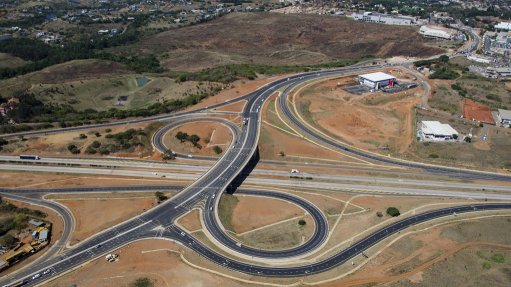
Caption: GOVERNMENT EXPENDITURE The consulting engineering industry is highly dependent on government expenditure
Despite infrastructural investment promises made by government, engineering consulting service provider SMEC South Africa CEO Kostas Rontiris tells Engineering News that investment in civil infrastructure has not been up to scratch in recent times, which has seen big consulting firms increase their focus on large-scale projects.
He notes that the drop in the number of infrastructural development projects being carried out has meant that smaller consulting firms are being awarded the tenders for smaller projects.
“These smaller firms now have an advantage over the bigger generic firms in the bidding stages. Competition is quite fierce at the moment from the smaller emerging firms, which is in line with the government’s strategy of diversifying the industry,” Rontiris notes.
Commenting on the impacts of low government expenditure, Rontiris mentions that related to the funding problems is the bureaucratic red tape surrounding international investor funding for infrastructure.
“The consulting engineering industry is highly dependent on government expenditure. If the government does not spend to build roads, airports, hospitals and schools, it is impossible [for the industry] to grow.”
He points out that the lack of government expenditure on infrastructure has, sometimes in the past, translated into payment issues; however, Rontiris highlights that the recent release of the Treasury procurement guidelines, which came into effect earlier this month, will be a welcome change for the consulting industry.
Moreover, Rontiris indicates that being an international firm, the company has been approached by overseas funders, which it introduced to the relevant government departments. However, it seemed that, on the part of government, the mechanism to accept this type of funding for infrastructure projects is not in place.
Being in a globally-competitive industry, he notes that if government does not accept this funding, it will forfeit it to another country. He emphasises that government must be more investor-friendly in the infrastructure space, adding that South Africa needs institutional reform.
Meanwhile, Rontiris notes that, owing to tough competition in the consulting engineering field, less funds are being allocated to training and development of young engineers. He explains that, in the long term, this will hamper the country’s capacity to deliver large projects – “this is a major concern for the South African industry”.
As part of the company’s efforts to ensure infrastructural project delivery capacity in the country for years to come, SMEC has established an expansive bursary scheme, which is aimed at enabling aspiring engineers and allowing for graduates to gain real-world experience within the company through internship programmes.
Rontiris states that students at various universities across the country are able to apply for the company’s bursary scheme. In addition, arrangements have been made with various universities enabling the company to present at open days. This allows SMEC representatives to meet personally with potential interns and bursary recipients. Elaborating on the company’s bursary scheme, Rontiris says that the company’s internal challenge is to take graduate engineers and train them to ensure they produce high-quality work.
Although these efforts by the company are contributing to a well-trained and qualified engineering workforce, “newly qualified engineers are still a problem for many consulting firms as graduates lack practical technical experience and this means that they are less productive”, Rontiris states.